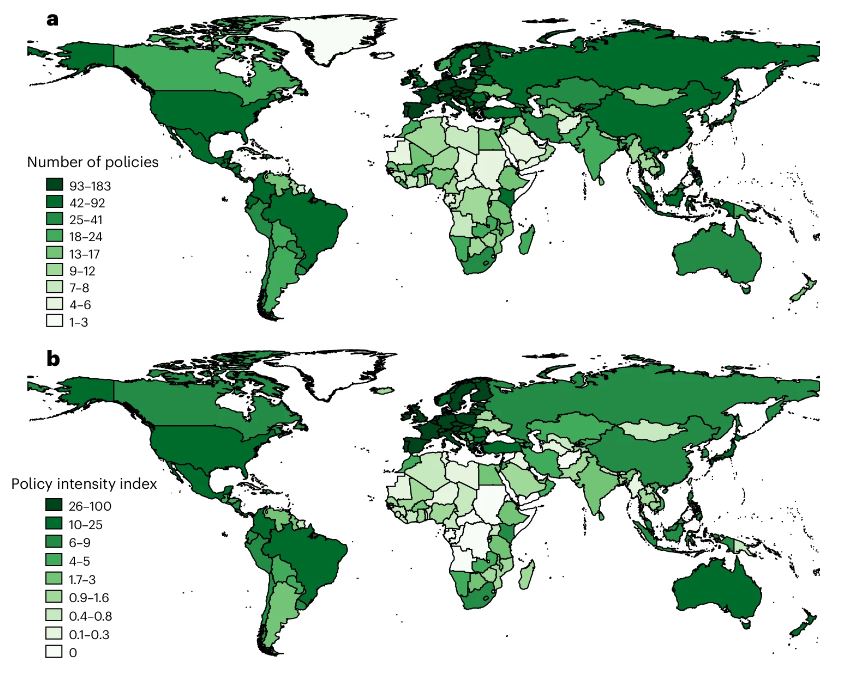April 01, 2024 | Nature Food | Source |
Introduction: The 2020s is dubbed 'the decade of ecosystem restoration' by the UN, and global agricultural challenges is in the spotlight. Agricultural Economics and Policy Group of ETH Zurich in Switzerlandand compiles a comprehensive database of agricultural-environmental policies, bridging information gaps between environmental impact and economic development, and conducts analyses, linking policy measures to economic growth, and assessing their impact on cropland soil erosion mitigation.
Key findings: This study introduces a database cataloging over 6,000 agri-environmental policies worldwide from 1960 to 2022. The database encompasses various policy types and goals, aiding research on economic development's association with environmental policies and their impact on issues like soil erosion. Analyses reveal a positive link between economic development and policy implementation, with certain high-income countries lagging in environmental measures. Moreover, the database facilitates investigations into the role of policies in mitigating global border discontinuities in soil erosion, with findings suggesting that policies explain a significant portion of such disparities. This resource enhances understanding of global environmental policy landscapes and informs strategies for sustainable agriculture and environmental conservation.
Figure | Number of agri-environmental policies and policy intensity index per country. a, A simple count of each country’s regulations, frameworks, payment programs and so on may offer hints into agri-environmental policy efforts, but ignores important policy characteristics such as ambition, targeting, stringency and enforcement. b, An alternative is to use a more complex metric by taking into account the general policy stringency and enforcement of these countries or the level of corruption they face. Arguably, agri-environmental policies are on average more effective when implemented by and in countries that generally have more stringent and better-enforced environmental policies and lower levels of corruption. By weighting the simple measure shown in a by these factors, an augmented measure can be obtained, as shown in b (Methods). EU member states have their own policies plus those of the EU.





